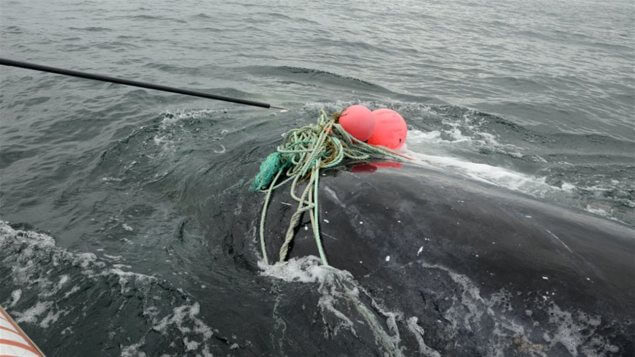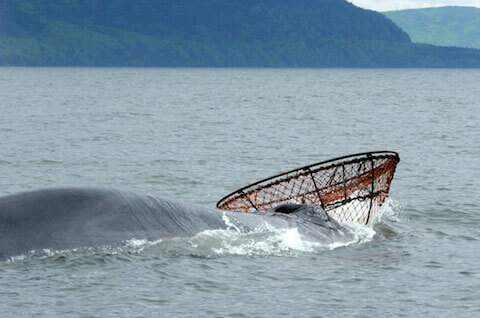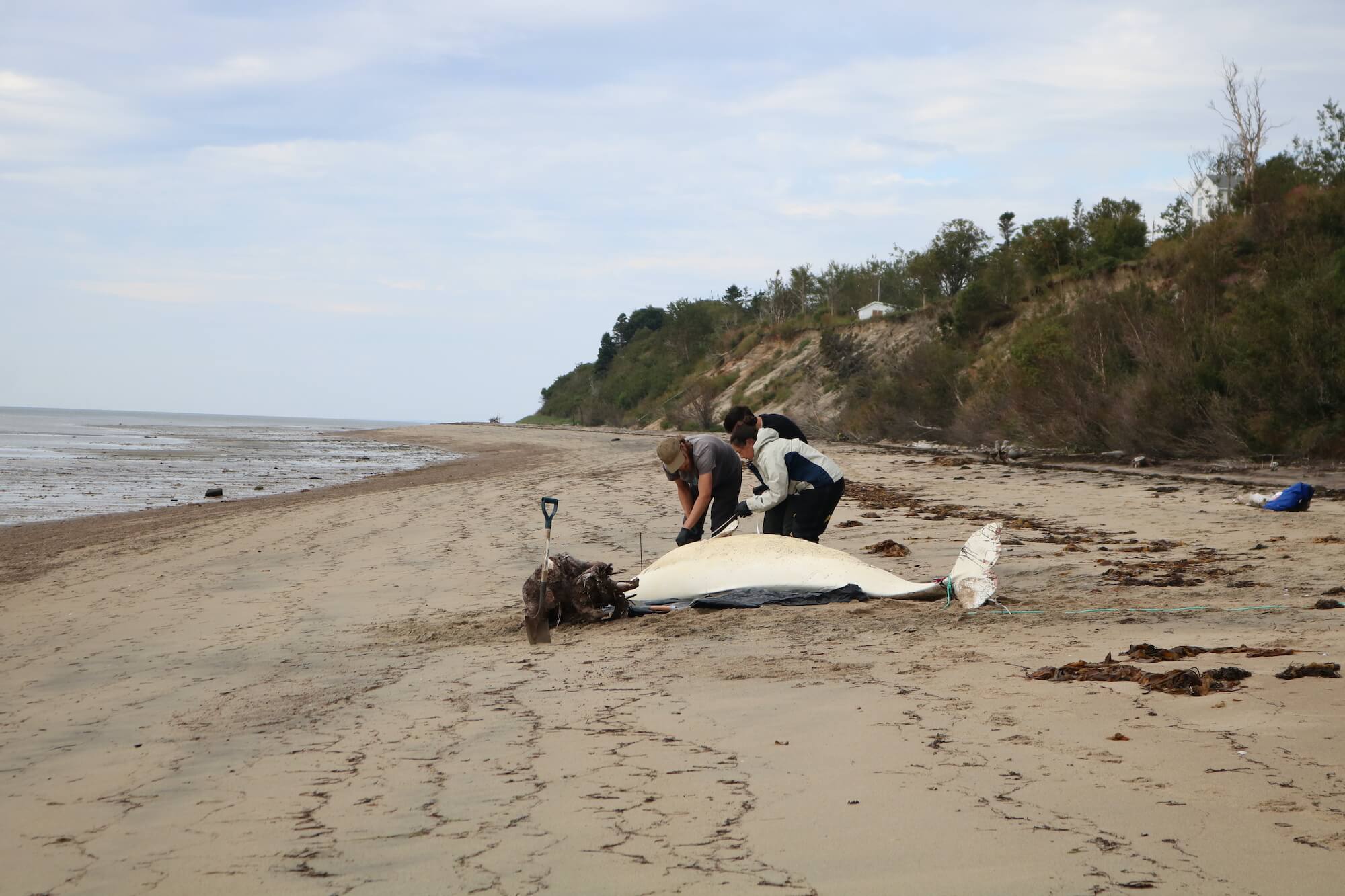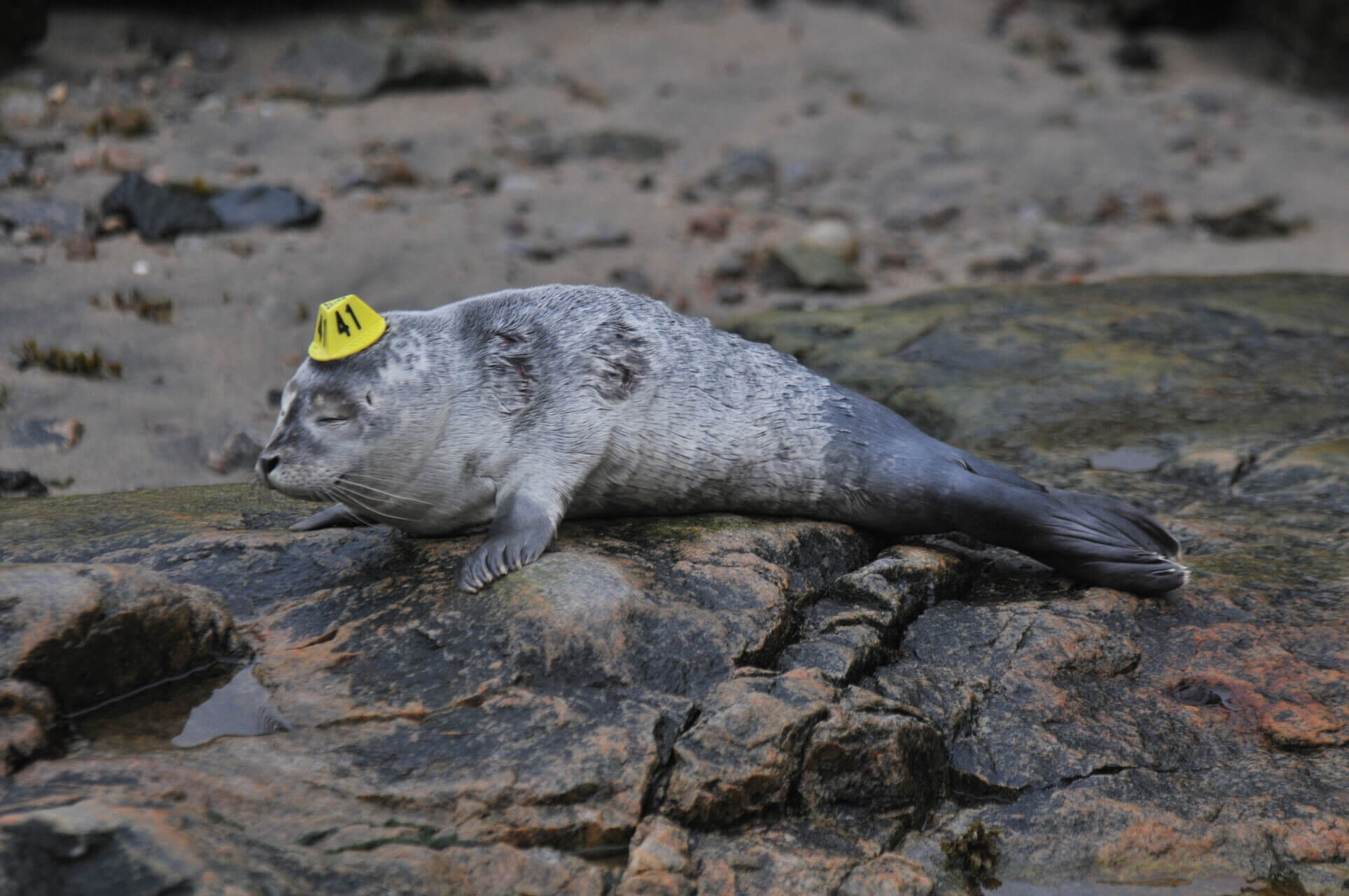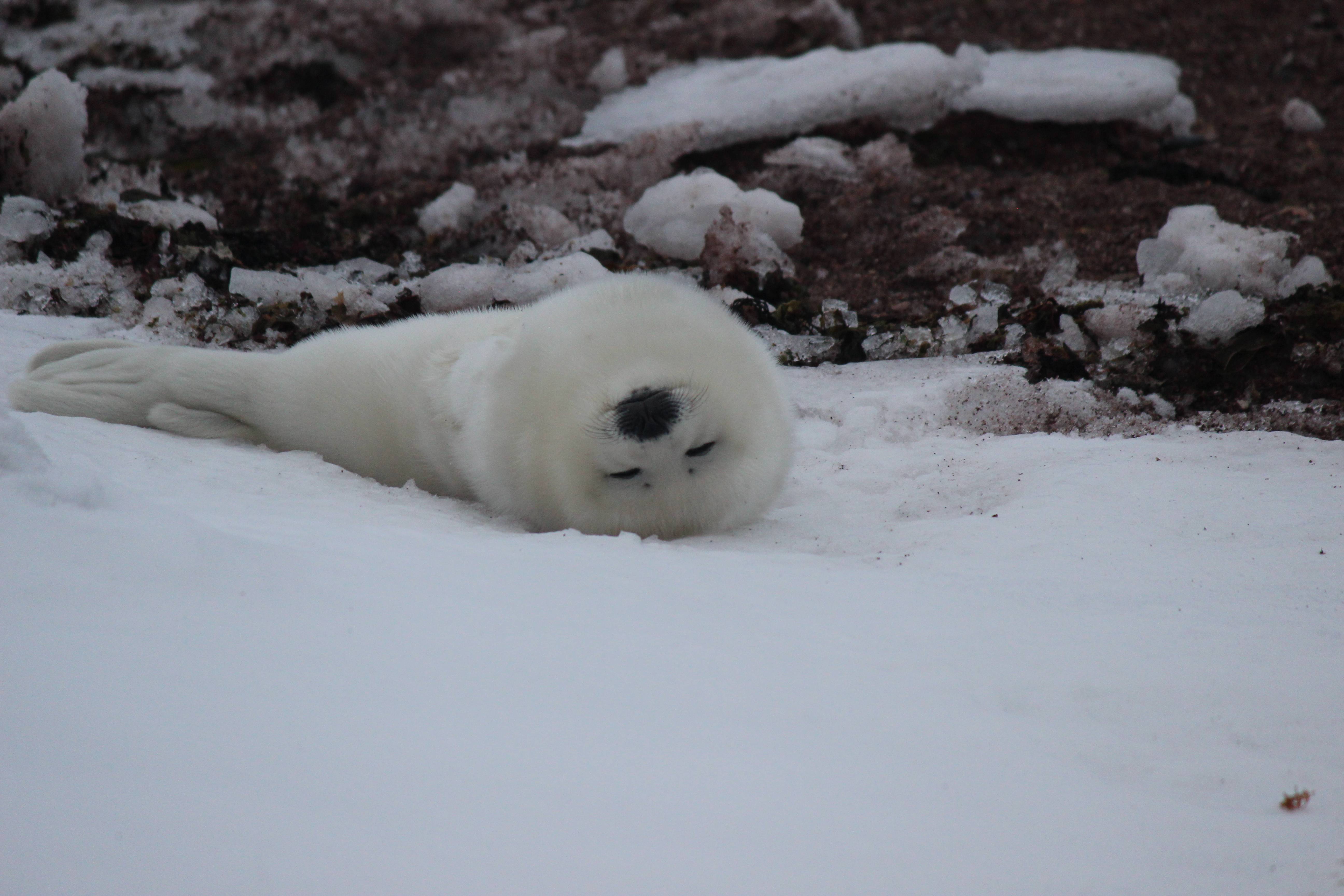Coordinating a disentanglement
Every year, the Quebec Marine Mammal Emergency Response Network (RQUMM) receives reports of marine mammals entangled in fishing gear (ropes, nets or traps). However, in Quebec, there is no specialized team with the necessary experience and permits to carry out disentanglement operations. Depending on the location of the whale, teams from the Campobello Whale Rescue Team (CWRT) or the Whale Release and Stranding Group de Terre-Neuve-et-Labrador can intervene in the case. Here is a look at the issues related to these complex and risky operations.
The Network must gather as much information as possible, including photos or videos to identify the species, details on the gear in which the animal is entangled, how severe the entanglement is, the precise location of the the incident and how the animal is behaving. The Network acts as a support team to relay information to the release crews and to Fisheries and Oceans Canada (DFO). The Network is also responsible for informing the public of the incident as well as for bringing specialists up to date as the situation evolves.
Managing risks for humans and whales
Mackie Greene, a fisherman from Campobello Island, New Brunswick, is a member of the Campobello Whale Rescue Team (CWRT), which carries out marine mammal release operations in the Bay of Fundy region. Having handled over thirty entanglement cases since 2002, the CWRT boasts extensive experience in this domain. However, even for its experts, interventions remain extremely dangerous. The tragic incident of 2017, when CWRT co-founder Joe Howlett lost his life while disentangling a right whale, serves as a reminder. “Every case is different. These are truly dangerous operations… if they are not performed correctly, even with experience, things can go wrong,” points out Mackie Greene.
A release attempt is a highly strategic intervention that requires a proper assessment of the situation and a good reading of the animal’s behaviour. One must know how to approach the animal in distress without hitting it with the boat. A misguided release operation can also harm the animal. For example, by partially cutting the ropes, the animal could regain some mobility and thereby become inaccessible to specialized teams to complete the operation. Moreover, a person who intervenes without proper training exposes themselves to real dangers that can even be fatal.
In Quebec, marine mammal regulations stipulate that one must have a permit in order to perform any kind of manipulation or intervention on a marine mammal. Obtaining such a permit requires having completed appropriate training in a Ministry-recognized organization, good knowledge of marine mammal behaviour and anatomy, as well as relevant experience. These are important factors for ensuring the safety of responders and obtaining appropriate insurance to cover this type of intervention.
“At the present time, efforts are being made by the Ministry and its partners to improve response capacity for disentanglement operations in Quebec,” explains Antoine Rivierre, DFO senior regional officer for pelagic and marine mammal species. Fisheries and Oceans Canada does not rule out the possibility that recognized specialists will some day be able to supervise the training of those interested in setting up rescue teams.
Fishermen can be part of the solution, both in the prevention of entanglements and in release operations, in particular thanks to their intimate knowledge of fishing gear. In fact, the Campobello team was founded by fishermen who spearheaded this initiative on a voluntary basis, not only to assist marine mammals thanks to their love of the sea, but also to help their peers who lose their fishing gear.
So, if you happen to spot an entangled marine mammal, call 1-877-7baleine immediately! This way, all reasonable efforts will be made to assist the animal and ensure the safety of responders.
Diving a little deeper…
Incidental Catches in Fishing Gear (Whales Online, 2018)
Follow-up of the Capitaine Crochet Incident (in French, Whales Online, 2014)
Tryphon in Memoriam (in French, Whales Online, 2012)


